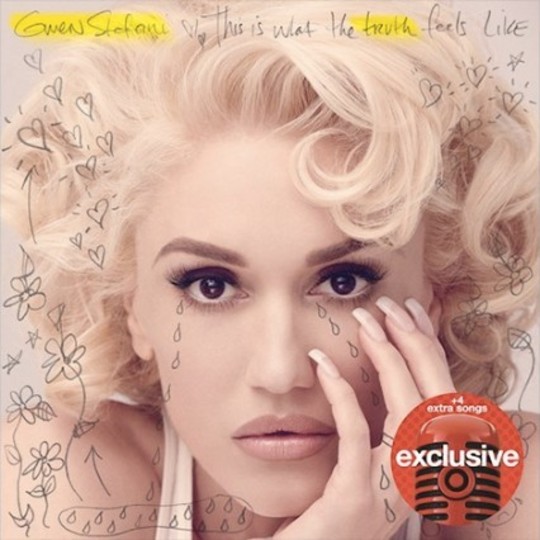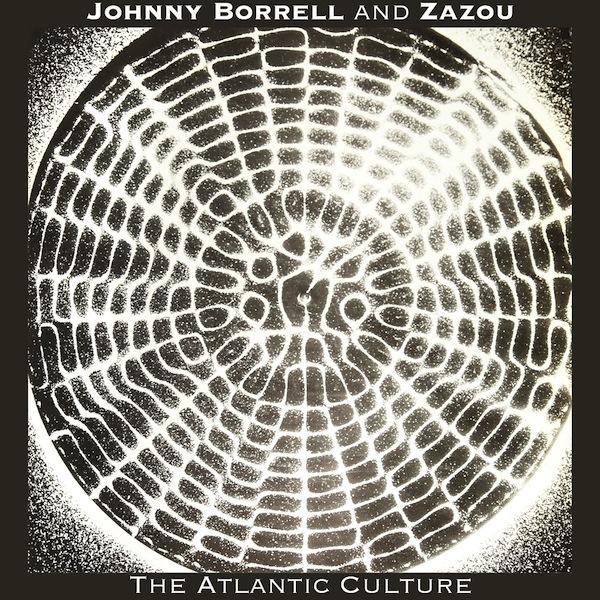No Doubt are one of the great examples of a band with a back catalogue that’s largely removed from their biggest hit. ‘Don’t Speak’ is the archetypal heartbreak ballad, and a mighty fine one at that, but the conventional wisdom is that it stuck out like a sore thumb both from the record it was on, Tragic Kingdom, and the Anaheim outfit’s canon as a whole. Both charges are fair, too; that 1995 breakthrough album is otherwise equal parts ska, punk and uptempo pop, whilst the electro extrapolation of those ideas on follow-up Return of Saturn, the delve into Jamaican dancehall on Rock Steady and the out-and-out ska scruffiness of their first two albums all largely skirted around straightforward chart pop. For clarity, I’ve declined to mention their 2012 comeback Push and Shove here as I’m still hoping that medical science will one day advance sufficiently that I’ll be able to have it surgically wiped from my memory, Eternal Sunshine of the Spotless Mind style.
There was the occasional flirtation with the mainstream - the country yearning of ‘Simple Kind of Life’, or ‘Running’, a slice of bubblegum pop which landed just the right side of saccharine - but for the most part, No Doubt’s nods to pop came more obliquely, through an understanding of hooks and melody that always seemed driven by Gwen Stefani. Between that and her position as one of the great frontwomen of the Nineties, a solo career was always on the cards, and when it did materialise, the signs were promising. 2004’s Love. Angel. Music. Baby established her as a star in her own right, with a clutch of killer singles that showed real stylistic dexterity on Stefani’s part. ‘What You Waiting For?’ was all madcap electro, ‘Rich Girl’ had enough R&B swagger even before Eve’s guest verse, and ‘Hollaback Girl’s Neptunes-produced hip hop silliness was enough to propel it to number one in the States. Perhaps just as importantly, Stefani proved she understood the idea of image as currency; years before Lady Gaga, she presented herself as a brash, eccentric pretender to the pop throne in an otherwise milquetoast chart environment.
Which leaves us wondering where it all went wrong. The writing was probably on the wall around the time she announced the list of collaborators for album number two, The Sweet Escape, which included the keyboardist from Keane and notorious fan-tosser Akon, who turned up on a title track that gives the Crazy Frog a very serious run for its money as far as the award for the decade’s most profoundly irritating single is concerned. The first track released, meanwhile, was an absolute monstrosity that interpolated The Sound of Music’s ‘The Lonely Goatherd’, on which Stefani took the 'look how bloody weird I am!' shtick way too far. You can actually hear, at one point, Pharrell Williams going, “she’s crazy, right?”, which I missed the first few times under the sound of my own muffled sobs. Even for somebody with Stefani’s profile, you had to wonder where she went next; a massive radio smash wasn’t enough to offset fears that she’d wandered too far from a winning formula, and sure enough, she retreated to No Doubt’s safe haven, touring solidly with her old band for a few years, and with solo work very much on the back burner.
And then, two years ago, Stefani decided she was ready to give it another go. Again, high-profile collaborators were apparently tapped - Charli XCX, Sia and Calvin Harris, if you take her at her word. Around the same time, she took up a coaching position on America’s version of The Voice, becoming the first person with any discernible musical ability to be involved with a show of that ilk. We’ll never fully know what direction she was heading in, but the indicators looked good for a December 2014 release. In fact, in the run-up, she’d already released two singles - ‘Baby Don’t Lie’, in which she took a sledgehammer approach to her longstanding fascination with reggae by affecting a Jamaican accent, and ‘Spark the Fire’, a half-arsed attempt at shoehorning both EDM sounds and ‘smartphone culture’ into the template left by ‘Hollaback Girl’. If that description has you reaching for the hard stuff, wait til you’ve actually heard it.
Fate was to intervene, though. Her marriage to Gavin Rossdale of Bush collapsed – due to his misbehaviour if you believe what you read in the gossip rags – and so our heroine chucked everything she already had for LP3 into the proverbial trash and started afresh, beginning with ‘Used to Love You’, a ballad that first landed back in October and, frankly, shattered my expectations. Where had this Stefani been hiding? If ever there was an appropriate time for her to skewer ‘Don’t Speak’, and flip it upside down, this was it, and she does it with such verve and assurance. On paper, a single so clearly about her divorce, so soon after it, that has a central theme of 'I’m over you', should have you assuming that the lady doth protest too much, but she carries it off with total conviction - she makes a believer out of you. The instrumentation, big but not overblown, matches the sentiment nicely, with an electronic drum beat that conveys the triumphalism without veering into chest-beating territory.
Stefani co-wrote every song on This Is What the Truth Feels Like and simply wanted, as she and the title both put it, to be honest. Thematically, then, it’s about her moving past her divorce, with some of the songs looking back and others forwards. Her new fella crops up often; he’s a musician, too, as I understand, and must be a country singer because a) he’s a household name in the States and b) I wouldn’t know him if I fell over him. Those tracks tend to be playful and poppy, and the results are mixed; ‘Make Me Like You’ is irresistible, irreverent disco with a hook to die for, whilst ‘You’re My Favourite’ shoots for a radio-friendly version of 808-heavy hip hop, but tries to neutralise any bite to the extent that it comes off a bit trite. The beach-ready, dance-chart celebration of sexting that is ‘Send Me a Picture’ is unremarkable enough that the only real takeaway is the unshakeable sense that Stefani has just rather crassly overshared with us, whilst ‘Asking 4 It’, a formulaic stab at the sort of hip hop that really sells these days, has a guest verse from Fetty Wap that he stumbles through so clumsily that you wonder if he recorded it first thing in the morning, straight from a particularly indulgent evening at his liquor-serving establishment of choice.
To be fair, she shot for that sort of thing on Love. Angel. Music. Baby, too – those kinds of songs that were clearly designed to be amenable to the Billboard Hot 200s and UK Top 40s of the world, but back then, you thought, 'who else could pull this off quite like she has?' She felt like a real, genuine one-off, and if there’s a real problem underpinning This Is What the Truth Feels Like, it’s that the handful of tracks that are unmistakably Gwen Stefani are the lowlights. It's the likes of ‘Red Flags’, which is a pretty bare-faced attempt to recapture the former glory that is ‘Hollaback Girl’, or ‘Naughty’, which is a kitchen-sink affair - pseudo-aggressive vocals, a weird, shoehorned-in Radiohead reference and another double-dutch ‘Hollaback Girl’ turn being just three of the veritable plethora of thrown-together aspects that form what, ultimately, is a bloody mess.
And, yet, you come away from a record that looked like it had all the ingredients for a particularly complex recipe for disaster feeling that maybe, just maybe, Stefani is starting to get somewhere again. When she hits the right spot she really nails it; she carries herself with such pop-star poise on the taut ‘Misery’, a real standout that has a concision and clinical execution that a lot of the album is lacking - just a big beat and an even bigger chorus that’ll unapologetically lodge itself in your head. The lyrics, too, have a cool, assured tone that - just like on ‘Used to Love You’ - sells you on post-divorce Stefani: “you’re like drugs to me...hurry up, come see me/pull me out of my misery.” On everything I’ve loved of hers - parts of the No Doubt discography, parts of Love. Angel. Music. Baby - there was honest pop songwriting beneath the daftness. There’s flashes of that here, too, and that’s promising; This Is What the Truth Feels Like is half-baked in places and perhaps a little too safe in others, but it’s really, properly genuine, and if she doesn’t leave it a decade next time, Stefani might still be able to make a great pop record. It’s in there, somewhere.
-
5Joe Goggins's Score






















